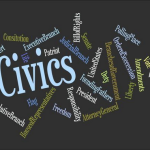Scott Shackford of the Monthly publishing magazine Reason, continued his coverage of the FBI’s prolonged push for more access to private information this morning. The senate tried passing the bill Friday in the AM but fell two votes short. (One in reality, McConnel’s vote no was strategic) Shackford explains,
“The vote is over a “gap” in what can been collected under National Security Letters (NSL’s). These orders are special secret demands whose uses were greatly expanded after September 11 and authorize the feds to demand that tech companies provide a list of specific data about a targeted user, all without a warrant. Furthermore, the tech companies are gagged to prohibit them from warning the user or the public about the data collection or even to let the public know they had received an NSL.”
There’s already language here that arguably violates our right to privacy and gives the FBI too much power to look through certain information you’ve shared. But now they want more as Shackford goes on,
“But there are some gaps in the kind of data an NSL could gather, and despite the controversies behind their use in the first place, the FBI has been pushing to expand them to collect more metadata about email communications and some browser search history data. The FBI had believed that they already had this authority but were told that wasn’t the case in 2008. They want this expansion in snooping to be made permanent.”
The FBI wants more access than ever before with their National Security Letters and it’s a potentially scary thought. Some notable Republicans are behind this including John McCain. Just as importantly Shackford notes so is the Obama Administration:
“It’s also worth noting that the Obama administration supports this expansion, and the FBI has taken the position that the failure to permit even wider surveillance is actually just a “typo” that needs to be corrected.”
The FBI thinks the restrictions to the amount of information they can acquire is basically just a loophole that needs to be tightened. There’s been some back and forth with this though for a while and just last month Shackford wrote about the Congressional debate as it was happening. Congress was making a push to stop the FBI from being able to use court subpoenas to get access to peoples emails without a warrant, but at the same time the FBI was making a push to allow their National Security Letters access to peoples old emails with no court order at all. Oregon Senator Ron Wydan has been one of the most outspoken against the FBI and Republicans attempts to push this bill through, as Shackford notes:
“There was one dissenter, Sen. Ron Wyden (D-Ore.) who has been the primary voice in that committee against unwarranted surveillance. CNet takes note of his response and warning:
But Sen. Ron Wyden (D-Ore.), the lone dissenting voice on the 15-member Senate committee, vowed to work on reversing the “dangerous provisions.”
“This bill takes a hatchet to important protections for Americans’ liberty,” he said in a statement. “This bill would mean more government surveillance of Americans, less due process and less independent oversight of US intelligence agencies. Worse, neither the intelligence agencies, nor the bill’s sponsors have shown any evidence that these changes would do anything to make Americans more secure.”
UWyden makes a good point here and one that needs to be stated over and over. Americans’ Fourth amendment right to privacy has become less written in stone and at times agencies view it seemingly as just a pesky set of rules to work around. Proponents argue that recent tragedies or disasters justify their agenda. Others find the notion debatable whether Americans become any safer with the FBI being granted this authority. After the horrible Orlando massacre, the FBI cited these shootings to launch their arguments again. As Shackford notes the Orlando shooter Omar Matin had been under surveillance for a while by the Government and it still didn’t stop him from committing the horrible atrocity he did. But others such as Senator McCain said;
“In the wake of the tragic massacre in Orlando, it is important our law enforcement have the tools they need to conduct counterterrorism investigations,” Senator John McCain, an Arizona Republican and sponsor of the amendment, said in a statement.”
Privacy advocates like the Electronic Frontier Foundation are working against this bill and Shackford listed a link to some of their bigger problems with this whole bill.


